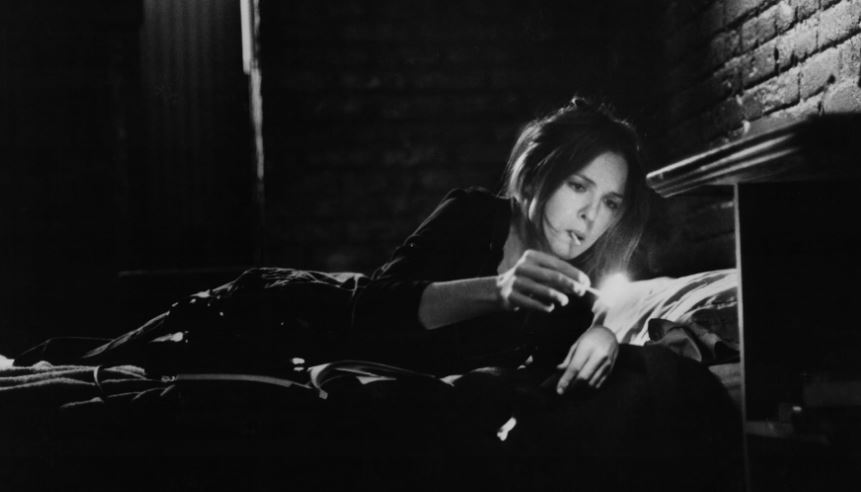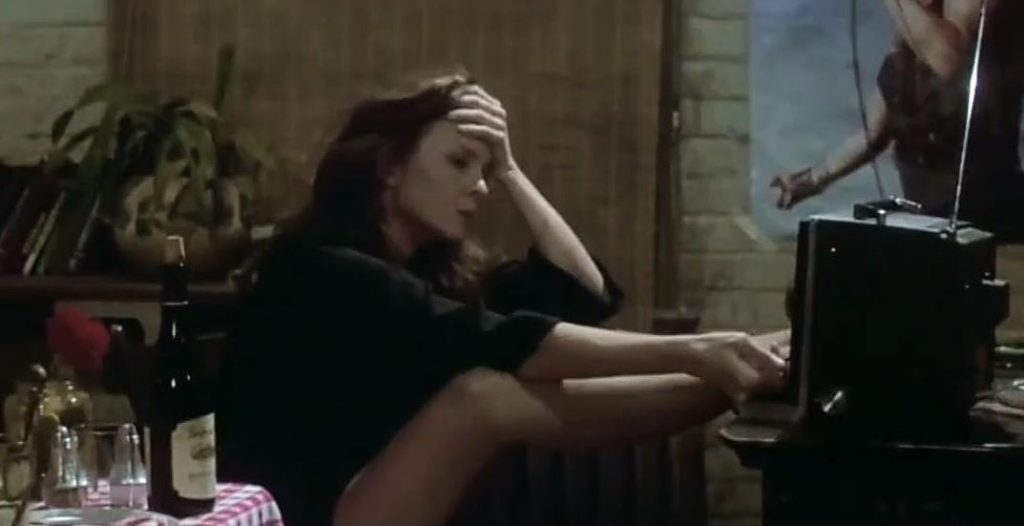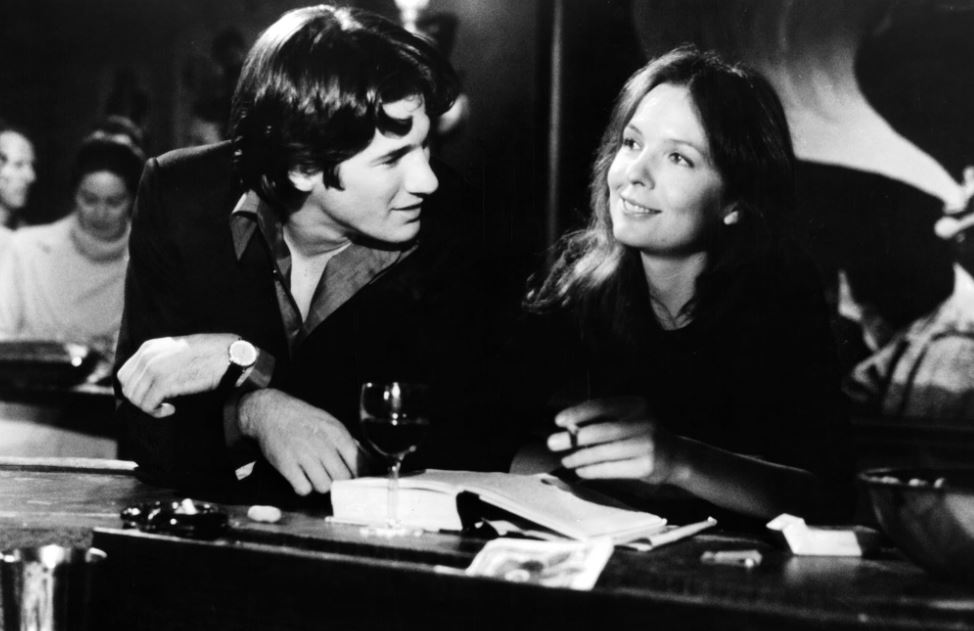
Keaton had loads of juicy roles throughout the seventies, including two Godfathers and all that excellent Woody Allen stuff, but the financially successful, bafflingly titled Goodbar was the first to truly put the focus on her. In many ways it’s a bad, overlong movie and I’d argue she’s miscast coz it sure is weird seeing her whip out her tits ‘n’ ass while snorting a line of coke. However, it’s also a fascinatingly grimy time capsule that contains an ending so downbeat and vicious that it makes the last shots of Easy Rider, Electra Glide in Blue and The Night Porter look timid.
Goodbar’s awkwardness is established during the opening titles with song clips jammed together over a series of still photos depicting nightclub life. It’s clumsy and horrible with things not improving when we meet the virginal Theresa Dunn (Keaton). She’s a Catholic training to be a teacher, but also having it off with her married prick of a college professor. “You are now a fallen woman,” he tells her after their first tryst, which turns out to be little more than a bout of premature ejaculation.

“Thank God,” she replies. Their scenes mainly fall flat, not helped by the director’s decision to pepper proceedings with daft fantasy inserts, childhood flashbacks and clunky dialogue (“People who tiptoe are not being considerate. They’re begging for attention.”) Still, there is one moment that works when Theresa asks her lover why he doesn’t talk or touch her after making love. “I just can’t stand a woman’s company right after I fucked her,” comes the reply.
Ouch.
I guess when you get involved with a charmer like that it’s bound to have an effect on your self-esteem. Theresa has other problems, though, including her religion’s expectations, being in the shadow of a ‘perfect’ sister who secretly swings, body image woes, an overbearing father, and the fact she teaches deaf kids, a job that probably makes her feel like she needs to be a perfect role model. Put it all together and everything becomes oppressive and toxic.

After lover boy dumps her, Theresa decides she can no longer live at home (“I can’t stay here and be myself”) and starts leading a double life hanging out in bars, smoking grass and wading through a small army of men. Notable for early appearances by the comically overacting duo of Richard Gere and Tom Berenger, I’m not sure if Goodbar is a woman’s journey of self-discovery or an exploration of 70s disco-tinged permissiveness. It’s certainly disjointed and cringeworthy at times, typified by a meta-conversation in which Gere chats to her about The Godfather (“Pacino is something, huh?”)
However, Keaton’s range as an actress is captured in her simpler moments when convincingly using sign language in the classroom or watching her first bit of porn, an experience that clearly communicates the character’s discomfort and fascination. Keaton has a prim, neurotic quality that Allen exploited to maximum effect but it’s hard buying her as a self-destructive slut. I think they call this casting against type, but the whole thing struck me as a desperate attempt to blow up the general perception of her.
Leave a Reply